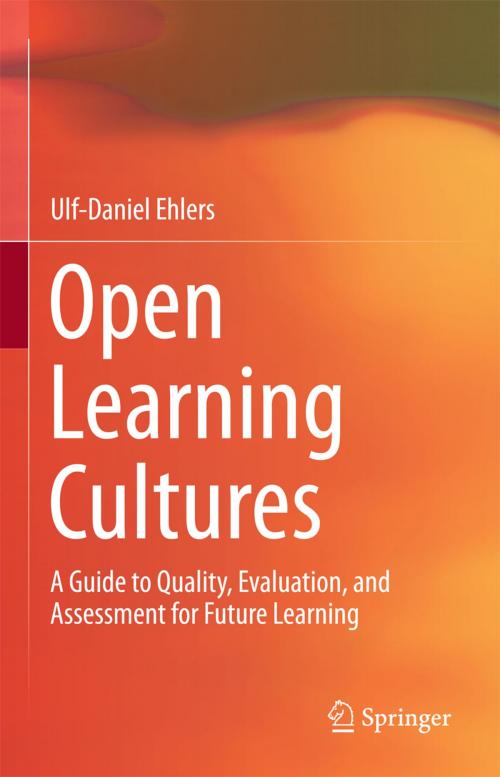Open Learning Cultures
A Guide to Quality, Evaluation, and Assessment for Future Learning
Nonfiction, Reference & Language, Education & Teaching, Educational Theory, Evaluation, Teaching, Computers & Technology| Author: | Ulf-Daniel Ehlers | ISBN: | 9783642381744 |
| Publisher: | Springer Berlin Heidelberg | Publication: | September 12, 2013 |
| Imprint: | Springer | Language: | English |
| Author: | Ulf-Daniel Ehlers |
| ISBN: | 9783642381744 |
| Publisher: | Springer Berlin Heidelberg |
| Publication: | September 12, 2013 |
| Imprint: | Springer |
| Language: | English |
Today we are seeing a new form of blended learning: not only is technology enhancing the learning environment but formal and informal learning are combining and there is self- and peer-assessment of results. Open learning cultures are challenging the old and long-practiced methods used by educators and transforming learning into a more student-driven and independent activity , which uses online tools such as blogs, wikis or podcasts to connect resources, students and teachers in a novel way.
While in higher education institutions most assessments are still tied to formal learning scenarios, teachers are more and more bound to recognize their students’ informal learning processes and networks. This book will help teachers, lecturers and students to better understand how open learning landscapes work, how to define quality and create assessments in such environments, and how to apply these new measures.
To this end, Ehlers first elaborates the technological background for more collaborative, distributed, informal, and self-guided learning. He covers the rise of social media for learning and shows how an architecture of participation can change learning activities. These new paradigms are then applied to learning and education to outline what open learning landscapes look like. Here he highlights the shift from knowledge transfer to competence development, the increase in lifelong learning, and the importance of informal learning, user generated content, and open educational resources. He then shows how to manage quality by presenting a step by step guide to developing customized quality concepts for open learning landscapes. Finally, several methods dealing with assessment in these new environments are presented, including guidelines, templates and use cases to exemplify the approaches.
Overall, Ehlers argues for assessment as an integral part of learning processes, with quality assurance as a method of stimulating a quality culture and continuous quality development rather than as a simple controlling exercise.
Today we are seeing a new form of blended learning: not only is technology enhancing the learning environment but formal and informal learning are combining and there is self- and peer-assessment of results. Open learning cultures are challenging the old and long-practiced methods used by educators and transforming learning into a more student-driven and independent activity , which uses online tools such as blogs, wikis or podcasts to connect resources, students and teachers in a novel way.
While in higher education institutions most assessments are still tied to formal learning scenarios, teachers are more and more bound to recognize their students’ informal learning processes and networks. This book will help teachers, lecturers and students to better understand how open learning landscapes work, how to define quality and create assessments in such environments, and how to apply these new measures.
To this end, Ehlers first elaborates the technological background for more collaborative, distributed, informal, and self-guided learning. He covers the rise of social media for learning and shows how an architecture of participation can change learning activities. These new paradigms are then applied to learning and education to outline what open learning landscapes look like. Here he highlights the shift from knowledge transfer to competence development, the increase in lifelong learning, and the importance of informal learning, user generated content, and open educational resources. He then shows how to manage quality by presenting a step by step guide to developing customized quality concepts for open learning landscapes. Finally, several methods dealing with assessment in these new environments are presented, including guidelines, templates and use cases to exemplify the approaches.
Overall, Ehlers argues for assessment as an integral part of learning processes, with quality assurance as a method of stimulating a quality culture and continuous quality development rather than as a simple controlling exercise.















